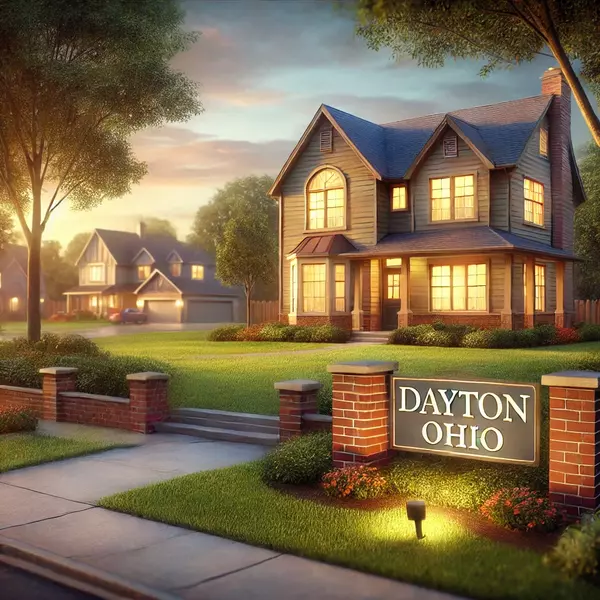The Impact of Climate Change on Real Estate: Planning for Resilience

As the effects of climate change become increasingly evident, the real estate industry is facing new challenges and opportunities for adaptation. In Dayton, Ohio, where changing weather patterns and environmental risks are a growing concern, planning for resilience in real estate is essential. In this discussion, we'll explore the impact of climate change on the Dayton real estate market and strategies for building resilience in the face of environmental uncertainty.
1. Increased Risk of Flooding and Extreme Weather Events
One of the primary concerns of climate change in Dayton is the increased risk of flooding and extreme weather events. Rising temperatures and changing precipitation patterns can lead to more frequent and severe storms, putting properties at risk of flooding and water damage. When evaluating properties in Dayton, consider their susceptibility to flooding and whether they are located in flood-prone areas or have adequate drainage systems in place.
2. Heat Stress and Energy Efficiency
Rising temperatures associated with climate change can also impact energy consumption and comfort levels in homes. Heat stress becomes a concern during hot summer months, leading to increased demand for air conditioning and higher energy bills. When searching for homes in Dayton, look for properties with energy-efficient features such as insulated windows, high-efficiency HVAC systems, and well-insulated walls and roofs, which can help mitigate heat stress and reduce energy costs.
3. Shifting Demand for Resilient Properties
As awareness of climate change grows, there is a shifting demand for resilient properties that can withstand environmental risks. Homebuyers in Dayton are increasingly seeking homes with features such as elevated foundations, storm-resistant construction materials, and green infrastructure elements like rain gardens and permeable pavement. Investing in resilient properties not only reduces the risk of damage from extreme weather events but also enhances property value and marketability in the long run.
4. Insurance Considerations and Risk Management
Insurance considerations are another important aspect of planning for resilience in real estate. As climate-related risks increase, insurance companies may adjust their policies and premiums to reflect heightened vulnerability to natural disasters. Homeowners in Dayton should review their insurance coverage regularly and consider additional coverage options such as flood insurance or extended replacement cost coverage to protect against climate-related risks. Additionally, proactive risk management strategies such as property inspections, maintenance, and retrofitting can help minimize potential damages and losses.
5. Community Resilience and Collaboration
Building resilience in real estate extends beyond individual properties to encompass community-wide efforts and collaboration. In Dayton, community resilience initiatives such as green infrastructure projects, urban forestry programs, and climate action plans play a crucial role in mitigating climate-related risks and enhancing overall resilience. Homebuyers and real estate professionals can contribute to community resilience efforts by supporting sustainable development practices, advocating for green infrastructure investments, and participating in local climate adaptation initiatives.
Conclusion:
In conclusion, the impact of climate change on real estate in Dayton, Ohio, underscores the importance of planning for resilience and adaptation. By considering factors such as flood risk, energy efficiency, resilient design features, insurance considerations, and community resilience efforts, homebuyers and real estate professionals can make informed decisions that prioritize long-term sustainability and mitigate climate-related risks. For more insights into real estate trends and opportunities in Dayton, visit Life Around Dayton for comprehensive information and resources on the vibrant and resilient real estate market in the Dayton area.
The impact of climate change on real estate in Dayton, Ohio, underscores the importance of planning for resilience and adaptation. By considering factors such as flood risk, energy efficiency, resilient design features, insurance considerations, and community resilience efforts, homebuyers and real estate professionals can make informed decisions that prioritize long-term sustainability and mitigate climate-related risks. For more insights into real estate trends and opportunities in Dayton, visit Discovering Dayton for comprehensive information and resources on the vibrant and resilient real estate market in the Dayton area.
Categories
- All Blogs (112)
- Dayton Homes for Sale (69)
- Dayton Ohio (103)
- Dayton Real Estate (100)
- First Time Home Buyer (43)
- fixer upper (5)
- Green Real Estate (4)
- Home Owning (34)
- Interest Rates (4)
- Luxury Living (6)
- Real Estate Investing (3)
- Relocating (4)
- renovation (2)
- retirement (3)
- Selling a home in Dayton (11)
- smart homes (1)
- Spring (9)
- Spring Cleaning (3)
- Summertime (1)
- Tiny Home (1)
- Wellness (1)
Recent Posts










